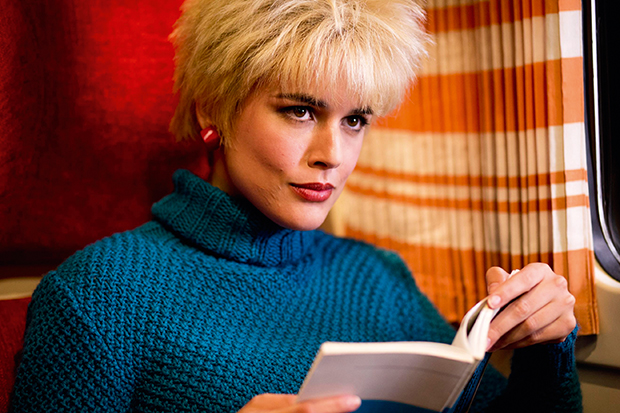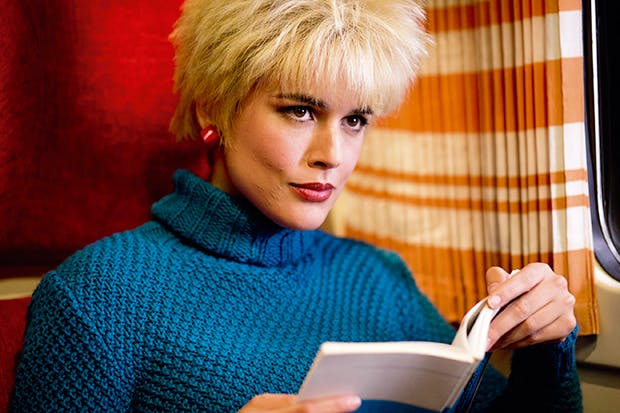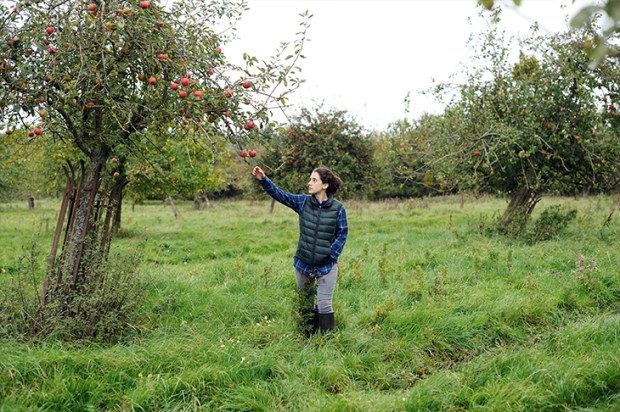Everything about Julieta feels totally Almodóvarian. It’s a family saga that smoothly blends tragedy and levity, with exquisite performances from a company of passionate actresses. It looks carefully ravishing. Many of the director’s abiding themes are here: terminal illness, sudden death, a mother’s love for her child, men hanging about the fringes. And yet it is based on a most un-Hispanic source.
The Julieta of the title was originally Juliet, who features in three interlinked short stories from Runaway, the 2004 collection by Alice Munro. Munro won the Nobel Prize for Literature three years ago after a lifetime writing quiet stories that conceal hammer blows. In the originals, the setting is Canada, whose snowy heartland and storm-tossed Pacific coast provide the location for the two deaths on which the plot hinges. In the film, Spain’s chilly winter plateau and the modestly heaving seas serve as less threatening substitutes for British Columbia.
As for the rest, Almodóvar has mapped Munro’s stories onto a timeline which involves a huge chunk of flashback. We first meet Julieta (Emma Suárez) in middle age when she is packing up her apartment in Madrid to begin a new life in Portugal with her partner, a bald intellectual who is slightly less exciting than wallpaper (although, to be fair, the wallpaper in Julieta is a riot). Then in the street she bumps into a young woman who tells her she has recently seen Julieta’s daughter Antía in Italy, where she now has four children. This coup de foudre prompts Julieta to drop her plans and the bald intellectual, and move back into the apartment block where she and Antía once lived. There she embarks on a long letter that explains to the daughter she has not seen for a dozen years the circumstances in which she and Antía’s father met and parted.
So we swoop back to a nocturnal winter train journey in which the much younger Julieta (Adriana Ugarte) is joined in her compartment by an older man. Creeped out by his over-familiar conversation, she flees to the restaurant car where she hooks up with a prepossessing younger hunk called Xoan (Daniel Grao). There’s a stop at a station, then another caused by an accident: the older man, it turns out, has thrown himself in front of the train. Julieta blames herself but is soothed by Xoan. They make love and promptly conceive a child.
As ever in Almodóvar, men are peripheral adornments to the narrative, symbolised by the neutered effigies created by Julieta’s sculptress friend — primeval figurines of men whose genitals have been lopped off. Meanwhile Almodóvar’s veneration for femininity of all ages is gracefully caught in a scene in which the young Julieta’s dyed blonde mop is dried by Antía; when the towel is removed she has transformed into the older Julieta.
While his literary source is Munro, Almodóvar nods in other directions too. A poster for Winter’s Bone, the film that launched Jennifer Lawrence, alludes to another solitary but resourceful young woman, while Julieta at one point fears she is turning into one of Patricia Highsmith’s obsessive characters. But most of all Almodóvar’s career-long homage to Hitchcock continues. It’s there in the sleek, trim cinematography of Jean-Claude Larrieu, Alberto Iglesias’s Herrmannesque score, the ravishing costume designs of Sonia Grande and above all in Julieta’s immutable blondeness.
The film’s signature colour is red, which pulses on the screen like a hazard light: it’s there in the fiery crop of a preening transvestite in the street, the russet banquettes on which Julieta and Xoan sleep top to toe, the flaming tattoo Xoan has inked onto his bicep, the bright hatchback snaking through mountain trees, Antía’s birthday cake dumped uneaten into the bin. And so on. It’s the colour of everything in this heartbreaking but hopeful film: rage, blood, heat, passion, danger, love.
The post Red hot appeared first on The Spectator.
Got something to add? Join the discussion and comment below.
Get 10 issues for just $10
Subscribe to The Spectator Australia today for the next 10 magazine issues, plus full online access, for just $10.
You might disagree with half of it, but you’ll enjoy reading all of it. Try your first month for free, then just $2 a week for the remainder of your first year.














Comments
Don't miss out
Join the conversation with other Spectator Australia readers. Subscribe to leave a comment.
SUBSCRIBEAlready a subscriber? Log in